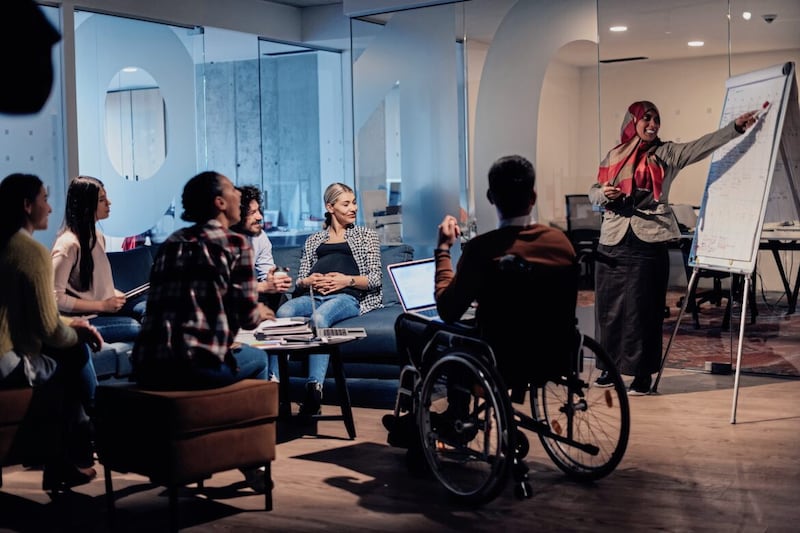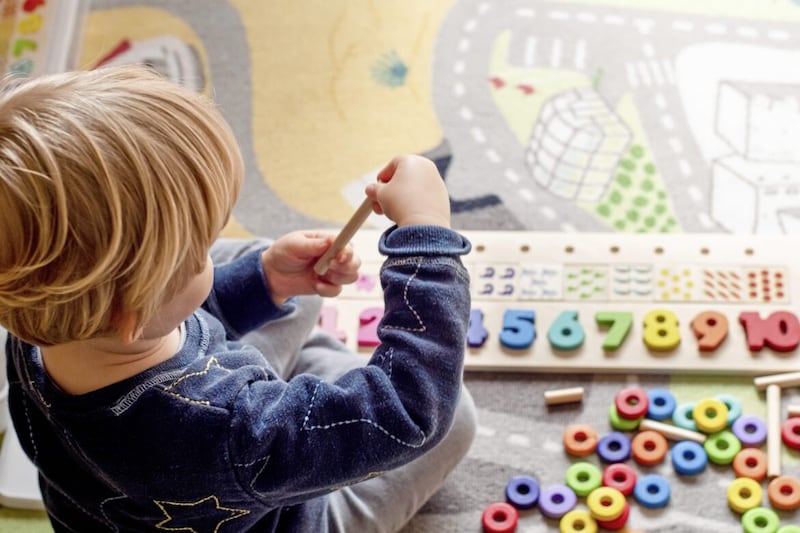LET’S hear it for Rachael Blackmore and the Northern Ireland women’s football team!
Marissa Callaghan and the players defied the odds when they beat Ukraine to qualify for the Euro 2022 finals – a feat made all the more impressive when you consider the senior team only reformed in 2004. Meanwhile, Rachael Blackmore created some history of her own, becoming the first female jockey to win the Grand National at Aintree.
Make no mistake, these women are legitimate trail-blazers. The skilled luminaries helping to rewrite the status quo and propel women’s sport forward so that more young girls and women view the beautiful game – and indeed any other sport – not as a ‘boys club’, but a level playing field.
Yes, there are underlying inequalities still to be addressed and stereotypes to be banished, but the tide is changing. In fact, Two Circles and the Women’s Sport Trust estimate that women’s sport could generate more than £1 billion a year in the UK by 2030 - a four-fold increase in current revenue, all in less than a decade.
The gender play gap is closing, but will the gender pay gap meet a similar fate? Reports indicate 2030 will herald another sea change in power dynamics: it is the year in which the world will contain more female millionaires than men. An inflection point which could well stand as a defining moment in the decades-long gender struggle.
Indeed, this accelerated trend is welcome news for us all. And much like Northern Ireland’s footballing prodigies, it is the elevation of female role models to positions of social and economic power that can light the fuse on a real, tangible, long-lasting transformation. By stoking the flames of entrepreneurial spirit, we can thrust our future female thinkers and leaders into centre stage… where they belong.
And it is their success that can open pathways and unlock opportunities for future generations where once there were obstacles and glass ceilings.
One need only look to education figures in Ireland, where women aged 25-34 are more likely to have a third-level education than men – 63 per cent and 57 per cent, respectively.
The difference is even more stark in the 35-44 demographic, where 62 per cent of women are more likely to hold a third-level education compared to 52 per cent of men.
If nothing else, it is a tantalising glimpse into our near future, where more education yields a broader range of opportunities for an economy fuelled by the women of today, and the visionaries of tomorrow.
The pace of change may feel gradual in the moment – glacial, even – but it is undoubtedly heading in the right direction.
Which can also be said about Marissa Callaghan and the heroes of the Northern Ireland women’s football team, who are now bound for the Euro 2020 championship next summer.
:: Roseann Kelly is chief executive of Women in Business. To find out more information on upcoming events, including how to register, visit www. womeninbusinessni.com or email info@womeninbusinessni.com









